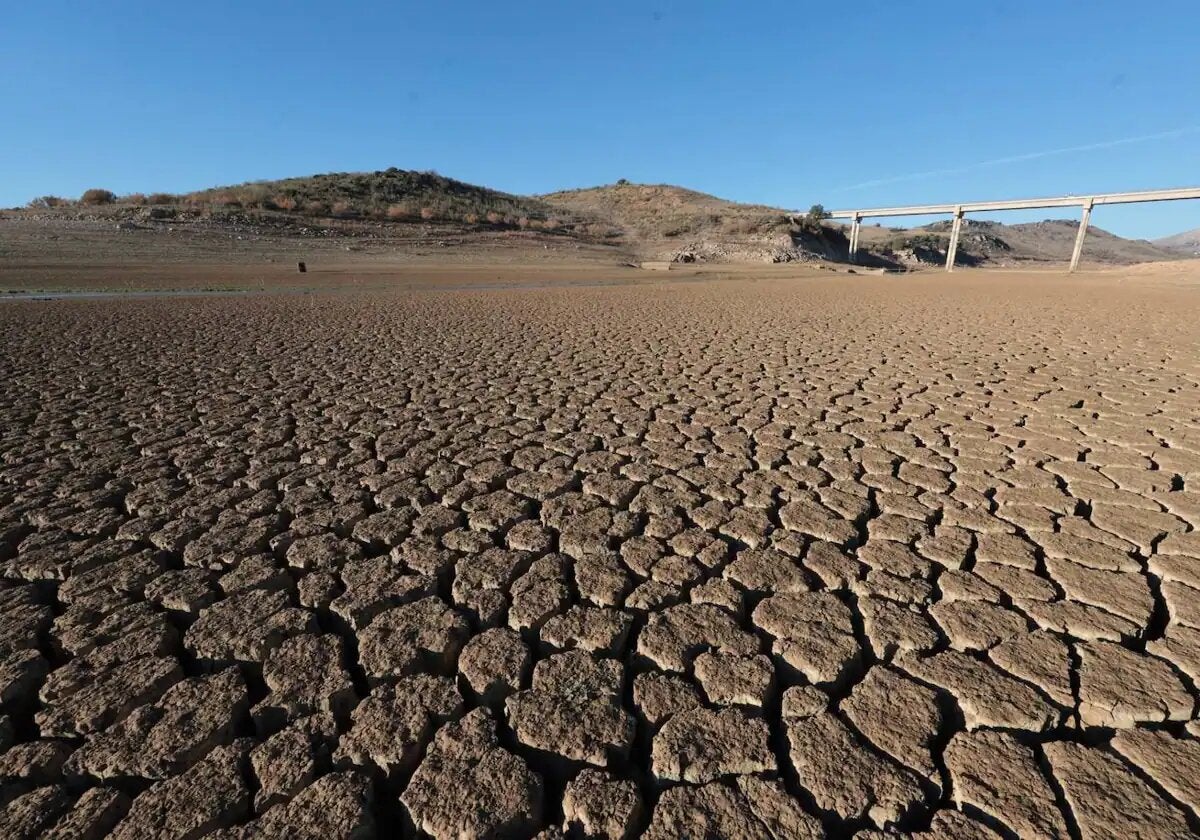
Sections
Highlight
Sections
Highlight
Chus Heredia
Malaga
Tuesday, 19 December 2023, 11:23
The Guadalhorce valley and Malaga city are likely to start next year with red level drought alerts in place, unless there is meteorological miracle bringing rain over the festive season.
The red level warnings have already been in place in the Axarquia and on the western strip of the Costa del Sol for some months, but a continued lack of rainfall means the supply in three crucial Guadalhorce valley reservoirs that feed the city is dwindling and the level has dropped below the 71 cubic hectometre barrier set by the Junta de Andalucía.
The Guadalhorce, Guadalteba and Conde del Guadalhorce reservoirs measured 67.9 cubic hectometres at the end of last week (17 December). That is the consumption of Malaga city for a year, but not all the water can be used and not all the water has to be supplied to the city, as right now 300 litres per second are being sent to the Axarquia.
The Guadalteba has just over 36 cubic hectometres (23.76% of its capacity); the Guadalhorce 20 cubic hectometres (16.10%), and the Conde 11.23 (16.89%), is at historic lows.
Autumn, broken hopes
What was promised to be a wet autumn, didn't turn out to be and that is reflected in the water reserves. The rainfall collected in the Guadalhorce reservoirs this autumn is an insufficient 47mm.
According to Acosol, the company which supplies water to the 11 municipalities in the area, the situation will get even worse on the coast in March.
If Malaga city has enough water for a year, across the rest of the province the shortage is even more critical. Water restrictions are increasing in the Axarquía with the cuts starting in Rincón de la Victoria. Pumps are also being used to salvage every last drop from the exhausted La Viñuela reservoir, with only 12 hectometres.
The Costa del Sol is saving the day for the moment with the Marbella desalination plant operating at its maximum capacity, which is half its original capacity due to refurbishment works. Some 21% of the supply to the coast comes from this plant, while the reservoir of La Concepción, which paradoxically spills water into the sea due to its small capacity, only stores 13.98 hectometres. Only 42mm of rainfall has been collected there this autumn.
Municipalities in the red level areas have long since adopted measures to save 20% of the regular supply. These include a ban on filling swimming pools, fountains, cleaning vehicles, watering parks and gardens, golf courses, beach showers and footbaths.
Malaga has already reduced consumption by 20% after the water pressure was lowered in five areas of the city. The area most affected by this situation now is inland. In the Guadalhorce valley, falling below the red level will mean that irrigation supplies for the year 2023-24 will be slashed from a maximum of 20 hm³ to 10-15.
The Diputación de Malaga provincial authority estimates that the impact on the province's gross domestic product could reach 40% if the drought persists. The impact on tourism would also be serious.
Publicidad
Publicidad
Publicidad
Publicidad
Esta funcionalidad es exclusiva para registrados.
Reporta un error en esta noticia


Debido a un error no hemos podido dar de alta tu suscripción.
Por favor, ponte en contacto con Atención al Cliente.

¡Bienvenido a SURINENGLISH!

Tu suscripción con Google se ha realizado correctamente, pero ya tenías otra suscripción activa en SURINENGLISH.
Déjanos tus datos y nos pondremos en contacto contigo para analizar tu caso

¡Tu suscripción con Google se ha realizado correctamente!
La compra se ha asociado al siguiente email
Comentar es una ventaja exclusiva para registrados
¿Ya eres registrado?
Inicia sesiónNecesitas ser suscriptor para poder votar.